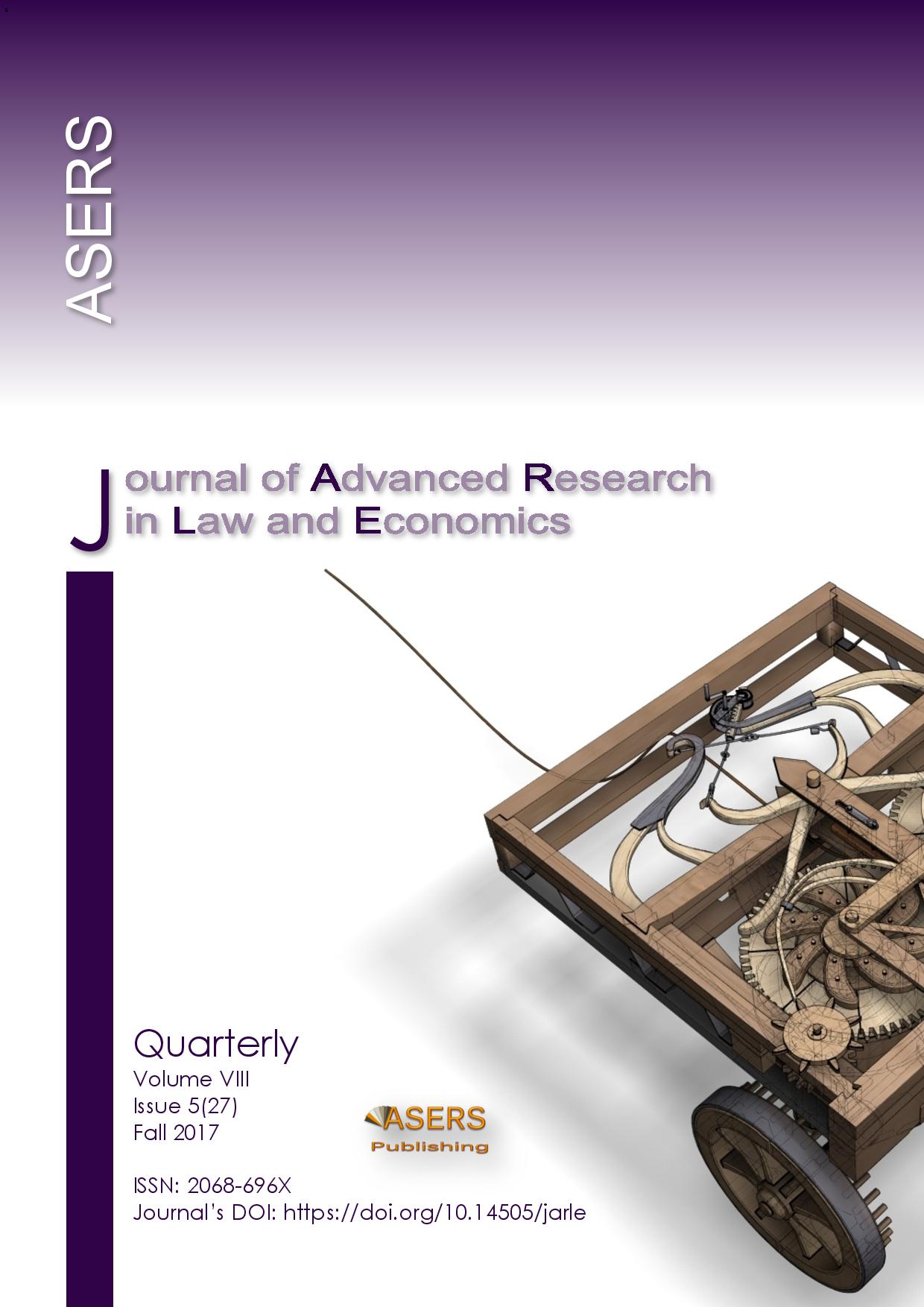Comparative Analysis of Regulatory Instruments and the Trend towards the Harmonization of Proprietary Regulation in the Civil Law of Member States of BRICS
Comparative Analysis of Regulatory Instruments and the Trend towards the Harmonization of Proprietary Regulation in the Civil Law of Member States of BRICS
Author(s): Alexander Borisovich Zelentsov, Vladimira Vladimirovna DOLINSKAY, Evgenia E. Frolova, Petr Alexandrovich Kucherenko, Mikhail Nikolayevich DudinSubject(s): Law, Constitution, Jurisprudence
Published by: ASERS Publishing
Keywords: proprietary law; private law; civil law; national BRICS legislation; harmonization; legislation;
Summary/Abstract: The current changes confirm the hypothesis that future economic transformations, as well as social and political interaction,will change their direction and that the American-European dominance will be minimized by the active development of the Eurasian and Asia-Africa region. In the medium term, the BRICS countries (Brazil, Russia, India, China and South Africa) will largely determine the world's political and economic agenda. Therefore, issues related to the study of the principles of civil law of the BRICS countries are becoming more and more relevant. The purpose of the article is formulated the following way: an analysis of the characteristics of the nationalregulation of proprietary rights reveals the specifics of the intercultural conflicts of the investigated area, the elimination of which will lead to the harmonization of the legislation of the considered countries, which will accelerate socio-political and economic-technological interactions between the BRICS countries, and will provide them with the best competitive position in the world economy. The proposed article, using a comparative analysis of the basic rules of the proprietary law of the five BRICS countries and using open economic-statistical, legal and regulatory data posted on the Internet, presented the structural and logical frameworks describing the key approaches of national legislation systems in this area of legal relations. On the basis of thedata, it was concluded that the proprietary law of the BRICS countries should be harmonized for the following main reasons:(1) the existence of cross-legal conflicts makes it possible to define the framework boundaries of harmonization of proprietary law in the five BRICS countries; (2) the existing loopholes and gaps in national legislation are sources of legal innovation and motives for the development of an institutional interstate environment within the BRICS.Thus, on the one hand, the article is analytical aimed at the review of the existing features of national regulation of proprietary rights in the BRICS countries. On the other hand, the article suggests a number of practical steps that need to be taken in order to harmonize the national legislation of the BRICS countries.
Journal: Journal of Advanced Research in Law and Economics (JARLE)
- Issue Year: VIII/2017
- Issue No: 27
- Page Range: 1641-1649
- Page Count: 9
- Language: English
- Content File-PDF

